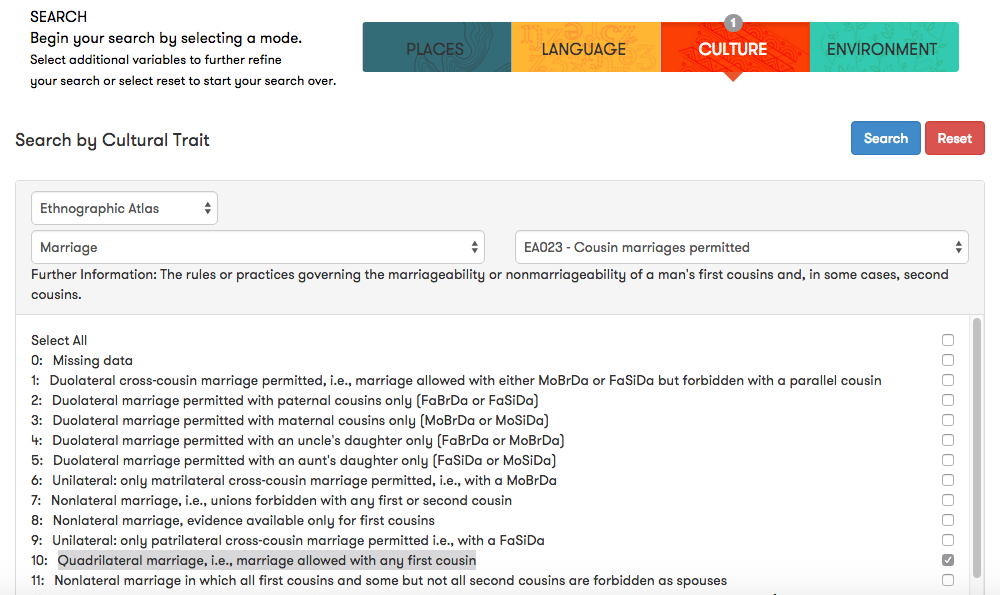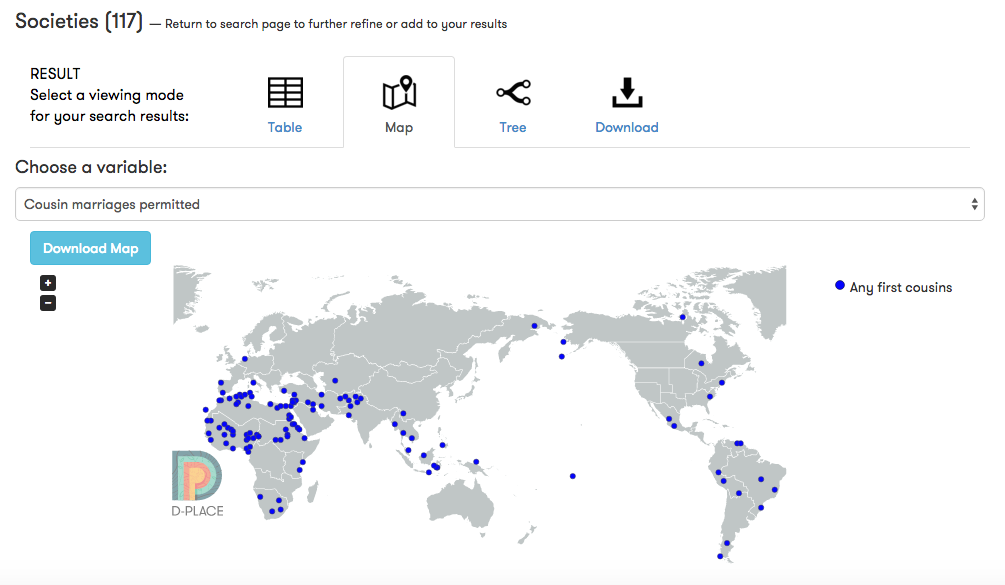Awesome Online Database of Cultural Differences
Culture-Geeks Will Love This!
I’ve recently come across a totally awesome database – it’s a treasure trove of statistical information about cultures, societies, language, places and environments; something I thought I had to share with my fellow culture vultures.
What am I talking about?
D-PLACE – the Database of Places, Language, Culture and Environment
The cultural differences in how we all live around the globe are staggering. To date there has been lots of information, study and research on a culture that shines a light on some of these differences. However much of this has been on a culture-by-culture basis. On top of this different strands of research and their results are seen in isolation and never really seen in juxtaposition.
D-PLACE, “…represents an attempt to bring together this dispersed corpus of information. It aims to make it easy for individuals to contrast their own cultural practices with those of other societies, and to consider the factors that may underlie cultural similarities and differences.”
The online database provides cultural, linguistic, environmental and geographic information for over 1400 human ‘societies’. A ‘society’ this instance represents a group of people in a particular locality, who often share a language and cultural identity rather than a country or nation state.
In fact, the database has so much information it could even be accused of being too complex. The number of options available are amazing offering all sorts of insights and comparisons. Fancy comparing the language used in a region against the type of house they lived in? Yes, it is that detailed!
In terms of the cultural information used there are two cultural databases in D-PLACE that are drawn from: the Ethnographic Atlas and Binford’s Hunter-Gatherer Database.
Here is an example of a search using these databases [taken from the D-PLACE website]:
You're wondering: Where in the world are societies that allow marriage to any of your first cousins?
Select Ethnographic Atlas, then Marriage, then EA023 - Cousin marriages permitted. The categories here are quite complex, but the one we want to show is 10: Quadrilateral marriage, i.e., marriage allowed with any first cousin. Select that check box and press Search.

From the RESULTS page click the Map tab. There are 117 societies that are recorded as allowing marriage to any of one's first cousins. Most of them are in the Americas, South Asia, the Middle East, and Africa.

...you can download the Map, or you can download the results of your search as a CSV (comma-separated-values) table from the Download tab in RESULTS.
To start a new search, click SEARCH and press the Reset button.
Go check it out and let me know what you think!
Related Posts
By accepting you will be accessing a service provided by a third-party external to https://www.commisceo-global.com./

 +44 0330 027 0207 or +1 (818) 532-6908
+44 0330 027 0207 or +1 (818) 532-6908
